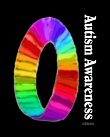I really like blogging. It is so much easier to me than journaling with pen and paper. I have probably started a hundred journals in my life, with all manner of notebooks and blank books, from the pretty to the utilitarian. I never manage to do it longer than a week or so. Writing by hand seems so tedious. I can’t stand my handwriting if I just “write” and spend an inordinate amount of time trying to make it neat, as if somebody were going to grade the thing. When you see people journaling in movies and such, they have these really neat journals full of pretty handwriting with little sketches…it all seems so lovely and meaningful. My journals never look like that. Well, more accurately, they look like that for about 3 days, then the pressure to continue to make it ‘perfect’ overwhelms me and it ends up in the pile of notebooks with half a dozen pages used and the rest of the pages blank. I also feel the need to “catch up” with every journal I start…and it is so overwhelming that I never really accomplish it and get frustrated.
In contrast, with blogging, everything flows. I can type much faster than I can write, and when I come to a word I don’t know how to spell, I just push through it the best I can and use spell check when I am finished. I don’t get as hung up on proper grammer or sentance structure compared to journaling by hand either, although I probably should pay more attention. lol.
Blogging is also really handy when you are in a chat room so you don’t have to rewrite the answer to “how/what are you doing” every time somebody new comes into the room. You just put a link and if they are interested, they can look and you don’t have to go through typing it all again. This especially nice when something really crummy is happening because you don’t have to keep reliving it.
Why do I feel the desire to blog? Mostly so the “little stories” of my life, of Zane, of family are recorded for those that follow me. There is so much I wish I knew about people who lived through what is history to me. Did grandma have the same feelings I do about raising children, did get excited over the feel of a particular yarn?, did she have a favorite pan?, where was she when Kennedy was shot and did it affect her?….the little things. How did she veiw politics and “historical” events…where they important enough to her to recognize the significance then, or did they pass by without notice and only realize in retrospect how big things were at the time. I know more about my family history than a lot of people my age simply because my grandparents only died recently (dh and I each have 1 grandma left, but until a few years ago, we had ALL of our grandparents and both of us remember at least one great-grandparent…pretty amazing when you think about it.)
I also want to record the daily events for a reference for myself. I have no sense of time what-so-ever. None. Just ask anybody who wants to meet me at a specific time. lol. I also have no sense of dates. I just get completely lost without having it recorded. Any time I have to recall when something happened, the only way I can figure out a close approximation of the date is to remember what my surroundings were like at the time of the event…what car was I driving, what furniture did I have, what was I wearing, what pictures were on the wall and then narrow down when those things all occured at the same time…things like that. I have a strong sense of history, the ebbs and flows of my life and civilization in general, but dates…no. I can tell you even the most innane detail of events, but not when they occured. For instance, I can visualize utterly the last night I spent in La Jolla, CA sitting on the beach watching the sunset. I can smell the air, hear the rhythm of the waves crashing on the rocks, see the sunlight dancing across the waves, and see the siloutte of the man fishing off the rocks not far from us. There are a million other minute details I can remember and in my mind, I am still right there, but off the top of my head, I can’t even tell you the YEAR it happened, much less the day. lol. (ok…we moved to La Jolla after we were married…in the fall…so it was the winter of 1995-1996. I think my parents came down after Christmas…aren’t the bowl games after Christmas (they came to see the bowl game)?…so it had to be around the last days of 95 or the first days of 96, but probably not New Year’s eve or day, because I think I would have remembered that, and I think before my birthday, because I would have remembered that…so probably around Jan 2 – 10th in 1996…whew…I can narrow that one down pretty well) I think that is why it is hard for me to remember when things happened in my childhood…there aren’t a lot of reference points. There was a tornado in 74, and the next “big” thing was a cluster of things that happened in 6th grade (getting period, winning art contest)…that doesn’t really narrow things down very well. lol. The trials of a stable childhood I guess. Zach has a lot more reference points to narrow stuff down. As a sort of funny note, when I went back and read some of my old notebooks, I often put the date without the year. Some of them I have no idea what year they are. I went to the same school and church until I was in my early 20s (I even went to college with a few of my classmates from preschool), so even the references to people are the same throughout my childhood. I just think that is weird.
I also love this blog because I can add pictures. I wish this computer actually had space to store the photos so I could add more (would love to have a picture every day), but I am on the crappier computer and have to kick Zach off of his computer to get to the pictures, and that isn’t going to happen every day. This computer has also taken to crashing when ever I try to plug the camera in, so I can’t even download *a* picture to put on the blog, but instead have to wait until Zach wants to download the camera *and* let me on to mess with pictures. I could be pushier I guess, but it doesn’t seem right for me to interupt him working so I can do something non-essential *right now*. I am just glad there is a second computer, as crappy as it is, so that I can actually get on the internet and do things without having to wait for him to be off the computer.
Well, both my guys were awake and active when I started this entry, and both are snuggled into bed as I finish. I hope this thing makes sense since it has been up on my screen for 4 hours with all the interuptions.













